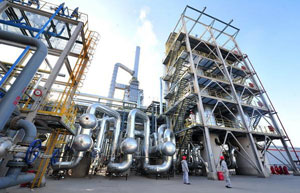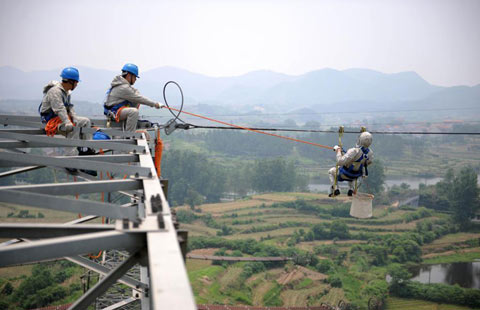A 30-year wait, and this is just the start
By Lin Boqiang (China Daily) Updated: 2014-06-16 07:07China signed a long-awaited 30-year deal last month to buy Russian natural gas worth about $400 billion, according to news reports. There has been a lot of debate about the agreed price, possibly because the pricing issue was the main reason for the long negotiations.
But the importance of the deal goes beyond the content of the deal itself. It provides an important turning point in Sino-Russian energy cooperation.
The deal addresses some of the urgent needs of both countries. Because of the air pollution cleanup, China is keen to have Russian gas as soon as possible.
In the long term, the deal will promote comprehensive cooperation in the energy sectors of both countries, including oil, coal and electricity.
China and Russia are strongly complementary in energy resources and markets.
Russia has abundant energy resources. It is the largest exporter of natural gas and the second-largest exporter of petroleum and petroleum products. Energy accounts for about 70 percent of the country's total exports.
Shrinking sales in traditional European markets due to the slow growth of demand in the region has motivated Russia to find alternative markets for its energy products. Also, the North American shale gas boom and possible lifting of the ban on US oil and gas exports increase this concern.
On the other hand, it is clear that growing Asian markets, especially China and India, are emerging markets for Russia's energy exports. China has the largest growth potential in the energy market and, to some extent, a strong Chinese energy market for Russia would mean not only great sales potential, but would also be a source of stable economic growth. This is especially so because Russia's share of the European natural gas market is expected to shrink.
Sino-Russian energy cooperation helps meet China's growing energy demand and ensures China's energy security. Economic development in China still largely depends on the availability of energy. This is why China's energy security is closely related to the sustainable development of the economy.
In the short to medium term, China also needs Russian gas to support the air pollution cleanup. China has achieved impressive economic growth over the past three decades. However, serious urban air pollution has attracted wide public concern.
The State Council initiated an action plan in 2013. It outlined efforts to improve air quality and drastically reduce air pollution, especially in areas near Beijing, the Yangtze River Delta and the Pearl River Delta, in the next five years.
Many factors contribute to air pollution in China. However, controlling energy consumption, changing the energy structure and increasing the supply of clean energy should be the main priorities of the cleanup. This is well understood: The plan is focused on reducing coal consumption in eastern China, and the government started by banning the building of new coal-fired power plants in these regions.
|
 |
 |
- Huawei's Kirin 920 to shake global chip market?
- China to log food company conduct
- China's mixed ownership reform advances against headwinds
- Time to do something different in China
- Flexible financing turns Mercedes dream into a reality
- Test drive on China's ancient trade routes with Rolls-Royce
- Bumpy start for plan to regulate taxi-calling apps
- CMB reveals credit to financial leasing companies

















